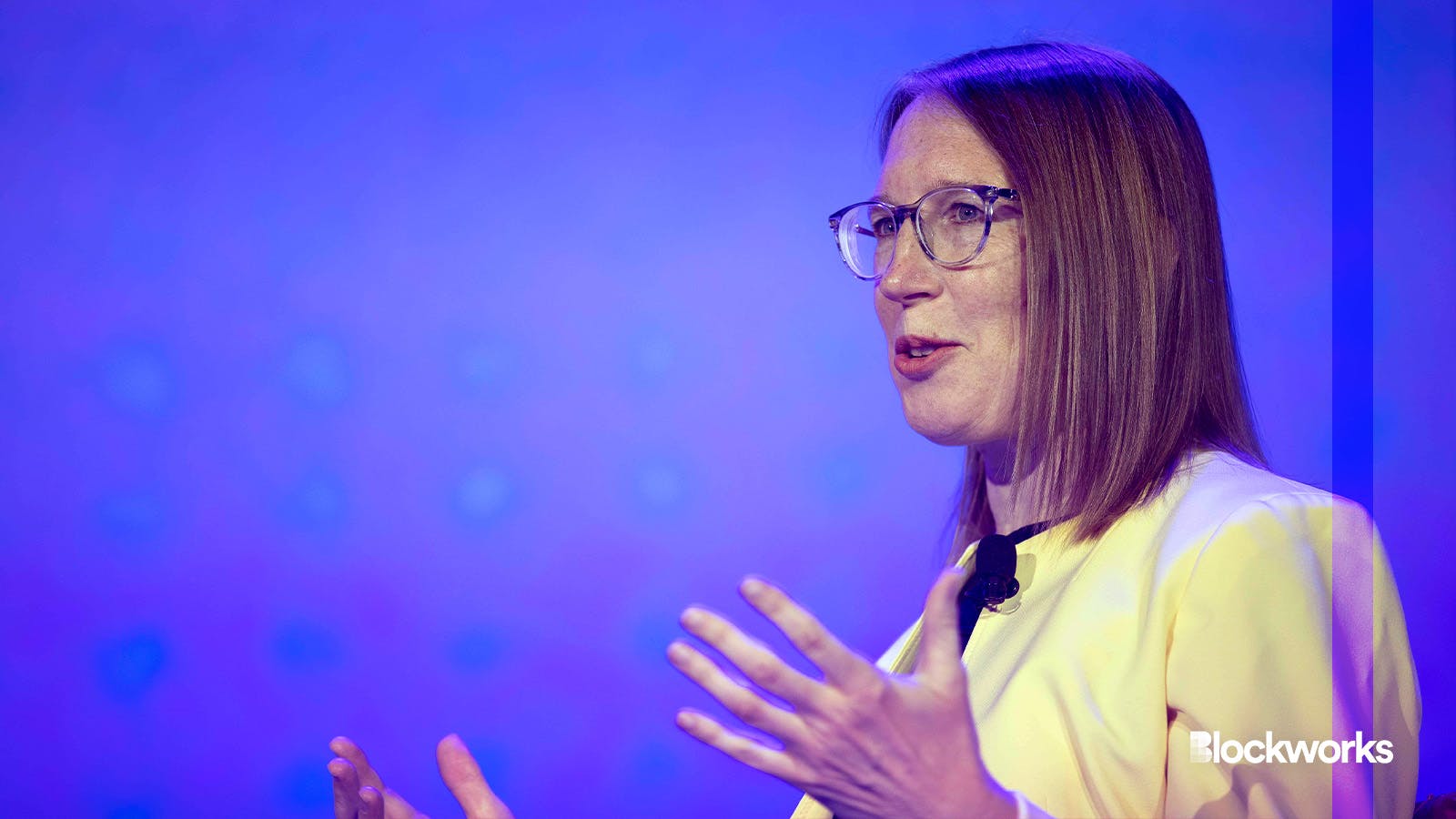SEC votes to expand ‘dealer’ rule to rope in crypto firms
The SEC’s newest rule brings hedge funds, proprietary trading firms and crypto companies that trade more than $50 million in US Treasurys and/or securities under its purview

SEC Commissioner Hester Peirce | Permissionless II by Blockworks
In a move impacting both cryptocurrency firms and traditional finance operations, the Securities and Exchange Commission on Tuesday voted to expand the definition of ‘dealer’ to include companies that routinely trade US Treasurys and other securities.
The SEC’s newest rule, first proposed in March 2022, passed in a 3-2 vote. Commissioners Hester Peirce and Mark Uyeda voted against the measure.
“I still do have concerns that we are forcing a regulatory regime on a set of entities… it’s going to inevitably cause some very difficult questions, both for us but more importantly for the firms that have to face these conflicting obligations,” Peirce said during an open meeting Tuesday.
The new regulations place hedge funds, proprietary trading firms, and others who act as liquidity providers for US Treasurys and securities through trades exceeding $50 million under the SEC’s definition of dealer. The classification means these companies will have to register with the agency, become members of a self-regulatory organization (SRO), and comply with federal securities laws.
Crypto companies that trade more than government securities — and/or digital assets that the government classifies as securities — are now considered dealers.
Firms have been “acting as de facto market makers, and despite their regularity of participation consistent with buying and selling securities or government securities ‘as a part of a regular business,’ a number of these firms have not registered with the Commission as dealers,” SEC Chair Gary Gensler wrote in a statement. “This deprives investors and the markets themselves of important protections—protections that benefit market integrity, resiliency, transparency, and more.”
Read more: Gary Gensler lost the bitcoin ETF battle. Can he win his crypto war?
Ahead of Tuesday’s vote, interested parties in the crypto and hedge fund industries submitted comment letters to the SEC accusing the agency of overstepping its power and creating unattainable policies.
The National Association of Private Fund Managers said the rule presents “inherent conflicts with the framework designed by Congress as contained in the securities laws” in a May 2022 letter, echoing similar sentiments from crypto companies that claim the SEC has no legal authority over their markets.
SEC Chair Gary Gensler disagrees, saying on Tuesday that his agency is permitted to regulate dealers and brokers under the 1986 Government Securities Act, which passed “in response to a dozen firms in the Treasury markets that had failed between 1982 and 1985.”
Read more: The anti-Gensler movement is picking up steam on both sides of the aisle
The DeFi Education Fund (DEF), which also submitted a comment letter in 2022, said on Tuesday that the SEC’s new rule is “misguided and unworkable.”
“While the SEC acknowledged receiving comments discussing DeFi, including our concerns, the SEC not only failed to confront the substance of our concerns but also failed altogether to articulate any discernible path to compliance for DeFi market participants,” DEF said. “Imposing obligations on entities in the DeFi ecosystem that cannot be complied with is wrong, impractical, and hostile to innovation.”
Get the news in your inbox. Explore Blockworks newsletters:
- The Breakdown: Decoding crypto and the markets. Daily.
- 0xResearch: Alpha in your inbox. Think like an analyst.






